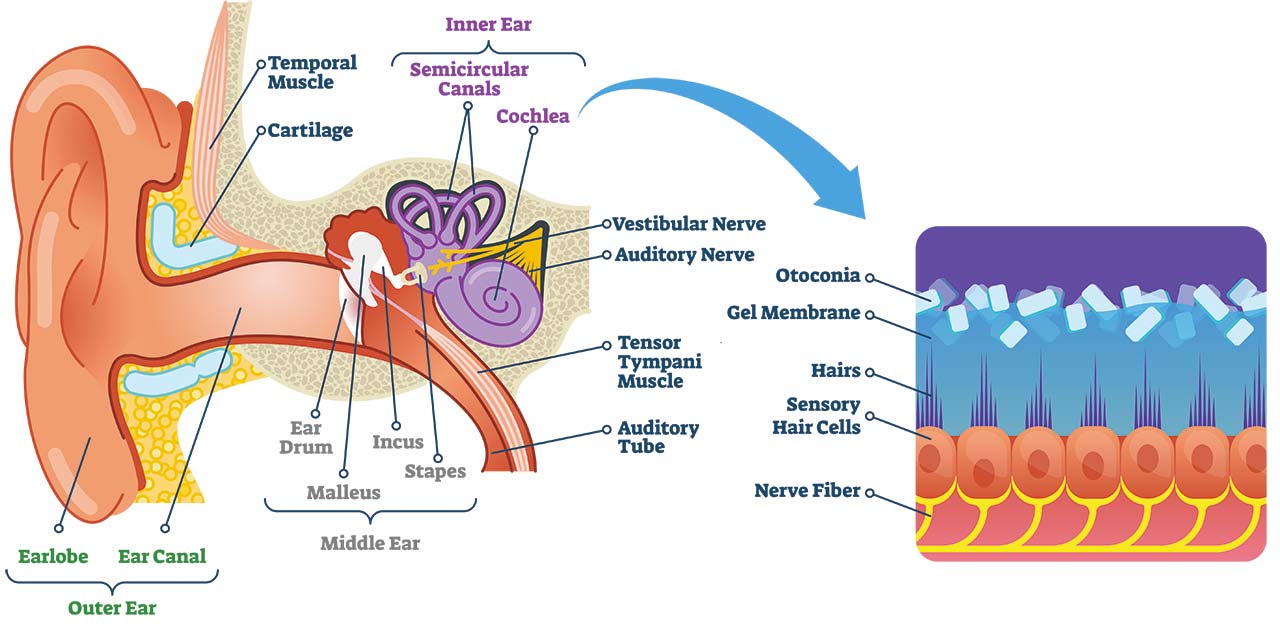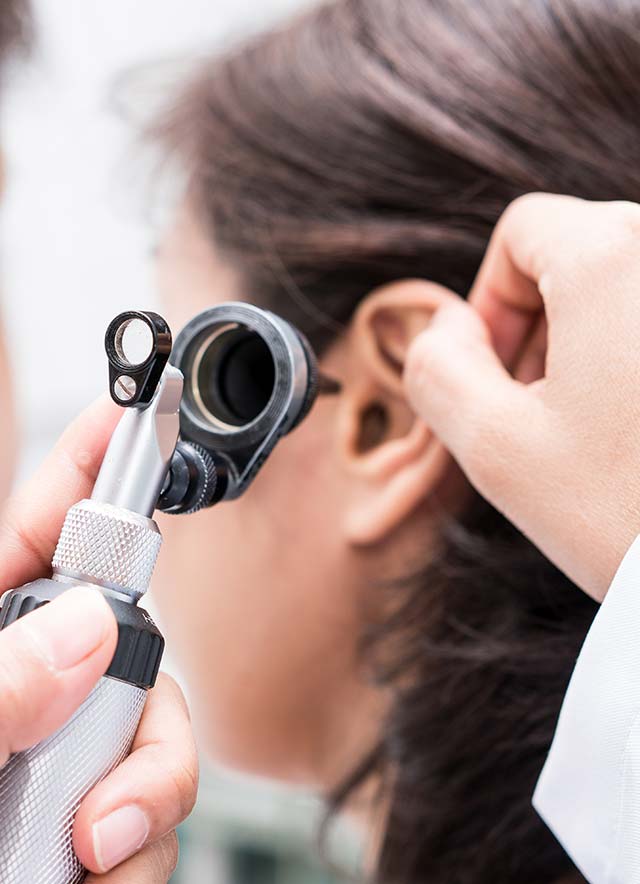Diagnosis of balance disorders first begins with exclusion of medical causes of balance disturbances. We can provide several treatment and diagnosis options.

Dizziness is a vague term that can mean different things to different people. To some people dizziness means a sense of spinning or whirling, while others describe it as lightheadedness or a feeling that they are about to fall. This may be because balance disorders are a mixed group of diseases that can affect the brain, the inner ear or can be the result of disorders elsewhere in the body. Otolaryngologists typically take care of patients with those related to the inner ear. It might seem strange the inner ear is involved with balance but this is because the ear organ, or cochlea shares the same location with the vestibular organs that regulate the bodies balance.
It does this through tiny hair cells that move in concert with head movement. The movement of the hairs is interpreted by the brain and allows a person to maintain their posture, head position and keep their eyes looking in the correct direction. When patients are affected by disorders of the inner ear they typically experience spinning or see the environment move. This may last for a very short period occurring in bed at night or with quick changes of head position as in the case of benign positional vertigo (click for more information) but may last hours or even longer than a day as in the case of vestibular neuritis.
Furthermore inner ear causes of vertigo may be accompanied by other symptoms such as ear fullness, hearing loss and ringing as may occur with Meniere's disease. Occasionally, dizziness may occur with loud noises are by straining such as in the case of superior canal dehiscence syndrome. By the same token, vertigo may be an atypical presentation of migraines which may or may not occur in the setting of traditional headaches. In rare instances vertigo may be a manifestation of a tumor of the brain, most commonly an acoustic neuron.
Diagnosis of balance disorders first begins with exclusion of medical causes of balance disturbances (drug interactions, arrhythmias, blood pressure fluctuations, hypoglycemia, restriction of blood flow to the brain) usually done by your primary care doctor. Once these causes are excluded the otolaryngologist must differentiate between the many causes of vertigo related to the inner ear or brain itself. This usually begins with a good history during which the otolaryngologist will ask about the duration of the dizzy spells and the presence of other symptoms. Based on this the doctor will perform a thorough head and neck, neurologic and vestibular examination looking for objective evidence of a balance disturbance. The otolaryngologist may send you for additional tests such as a hearing test, imaging of your brain such as an MRI or CT scan, or an advanced analysis of your balance function known as an electronystagmagram (ENG) or a video nystagmagram (VNG).
Treatment of balance disorders depends on the cause but may involve physical therapy, dietary changes and medicines designed to prevent dizzy spells or shorten attacks when they do occur. You may also be offered surgical therapy which may range from that as simple as injection of steroid into your eardrum in the office to more major procedures requiring consultation with a neurosurgeon.
Evidence has shown that vestibular rehabilitation can be effective in improving symptoms related to many vestibular (inner ear/balance) disorders. People with vestibular disorders often experience problems with vertigo, dizziness, visual disturbance, and/or imbalance. These are the problems that rehabilitation aims to address. Other problems can also arise that are secondary to vestibular disorders, such as nausea and/or vomiting, reduced ability to focus or concentrate, and fatigue.
